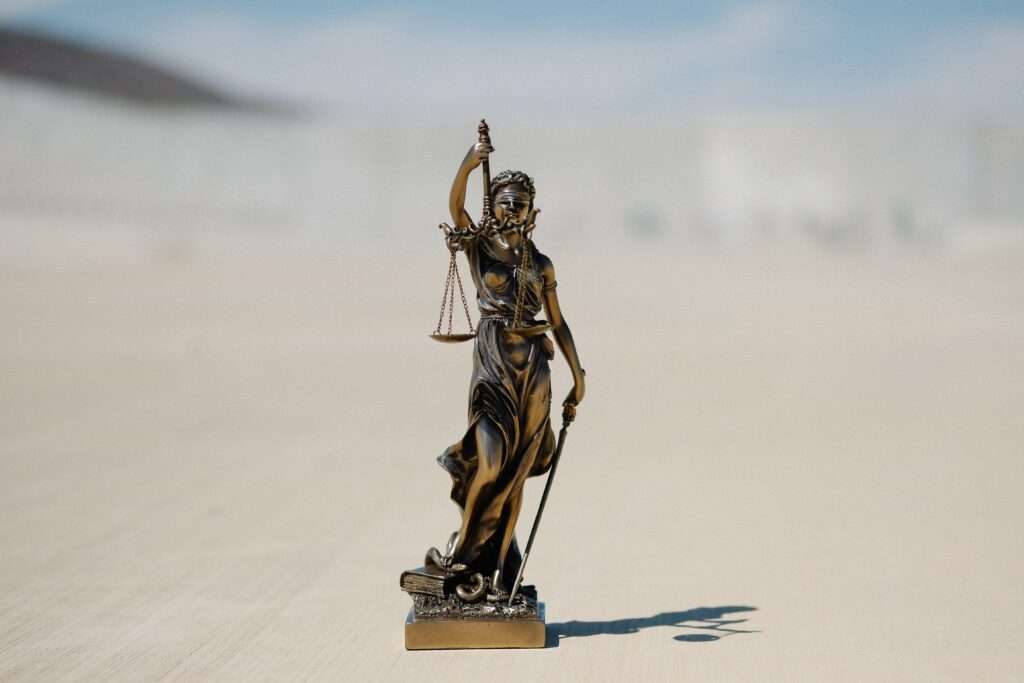Hello Ade,
I’ve a question on an executor withholding money from beneficiary in a blended family.
My brother Brendan is one of the beneficiaries on my stepmother’s will. There are 14 beneficiaries in total, all inheriting equal amounts.
The two executors of the will (who are beneficiaries within the 14) have decided to not pay him out of his share of the will due to according to them a misdemeanour. Are they allowed to do this, I thought whatever happens a will has to be honoured.
Can he take them to a small claims court for something like this?
Many thanks
M.P. Surrey
Hello M.P.
You’ve asked two questions. The first is easy.
Executor Withholding Money from Beneficiary in Blended Family: Forfeiture
You likely don’t remember Jeremy Bamber.
It was likely before your time.
The chances of there being a Jeremy Bamber in your family are, thankfully, as likely as snowflakes in the summer. Nonetheless, here goes. Mr Bamber, who till this day professes his innocence, was convicted of the August 1985 killing his adoptive parents and three other members of his family: his mother June Bamber; his father, Neville Bamber; his sister, Sheila Caffell; and his sister’s six-year-old twin sons, Daniel Caffell and Nicholas Caffell.

You’ve noticed I’ve made no distinction between birth relatives and adoptive relatives in enumerating the persons involved in this tragic drama. I would not describe a family some of whom were adopted as a blended family as blended family. But is one the best case in my observance with which we may illustrate the matter before us.
For completeness sake in inheritance and succession, there is no difference between children who were adopted into a family on the one hand and children who were born into the family.
The prosecution posited he was motivated by the possible inheritance.
He inherited nothing. By the rule of forfeiture, one is prevented from inheriting if one is convicted of murdering the deceased. This rule holds if the murderer would have been a beneficiary under an existing will or by the rules of intestacy
The grounds on which a beneficiary may be deprived of a gift in a will expands to if the beneficiary has been convicted of participation [including conspiracy] in contributing to the murder or manslaughter of the person whose estate it is.
No other crime, including the murder of anyone else could cause the forfeiture. The nature of the application of the rule of forfeiture is that is has to be by order of the court.
Executor Withholding Money from Beneficiary: Special Case
There is a special case in which someone’s gift in a will might be denied. If someone [a beneficiary] was known to be in line to get a gift in a will, and the beneficiary owed money to third parties, the beneficiary’s creditors to apply to the court to force the gift in the will to taken to satisfy the debt the beneficiary owed to their creditor.
Such withholding the entitlement in a will would have to be by a court order. The executors in a will could not unilaterally withhold a beneficiary’s entitlement.
The fact of yours being a blended family has no special significance to the forfeiture rule.
Executor Withholding Money from Beneficiary in a Blended Family: You Had One Job
This is one of the times where professional terminology lines up with the ordinary everyday use of language. Executor has one job – the executors duties to beneficiaries is to carry out the provisions of the will. It is not for the executors to enact punishment for misdeeds the beneficiaries might have committed. Such withholding of entitlement to gifts in a will might only be permitted in pursuance of a court order.
Can an Executor Withhold Money from a Beneficiary: Vengeance is not Theirs
By the case which you describe, the executors in withholdiing money from a beneficiary are clearly acting outside their powers in depriving your brother of his gift in the will. Vengeance is not theirs, not here. Your executors in withholding the entitlement of a beneficiary of the estate is opening themselves to several styles of punishment. Matters of litigation and criminal penalty are outside my bailiwick – my job is to prevent this sort of palaver arsing. Because I can see round corners, my job is to spot the seeds of such problems and prevent their germination by grinding them to sterile powder, so they’ll never find fertile soil. We’ll shortly alight on your second query.
Executor Withholding Money from Beneficiary: Absolution is the Courts’
You might recall the more recent case of Sally Challen. Ms Challen had suffered decades of abuse – emotional, physical and sexual at the hands of her husband. Her conviction with its attendant sentence to a term of life in prison of murdering her husband was quashed, she pleaded guilty to manslaughter of her husband, she was sentenced to a term of nine years and four months in prison – time already served.
The detail to our point is that she was allowed, by court order to inherit her late husband’s estate.
In sum, you asked two questions, the first is easy. Easy, the because the answer with no fuss or fight is: ‘no’. The executor may not withhold the gift to a beneficiary in a will. I hope this turns out to be merely a case of the executor threatening beneficiaries.
You might be wondering: how long does the executor have to pay the beneficiaries? Generally, two years from the date of death

Executor Withholding Money from Beneficiary: Just Like Beauty
It sounds like the amount of money is small, but size, like beauty is in the eye of the beholder. Therefore, my observation rather than advice, is that there is no harm in bringing a small claim. A matter that requires further deliberation as the detail is outside the scope of this question.
By your questions you thus illustrate the virtue of the professional executor who would approach the estate without prejudice or malice. I would put money on the fact that your stepmother wished her estate would be distributed to the benefit of her family rather than end up in law courts being wasted in legal fees and costs.
Back to the beginning, the answer to your question if an executor withholding money from beneficiary in a blended family is legal or fair. Short of a court order, no.
Finally, you ask if what happens in a will has to be honoured. Short of a court order, or the beneficiary renouncing, or varying their gift in the will, the provisions of the will must stand.
Many thanks,
Ade